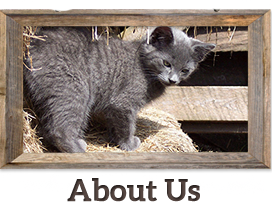Library
-
Knemidokoptic Mange also called "cere mites" or "scaly leg and beak mite," is a relatively common disorder of the beak and/or feet in several species of small pet birds. It is caused by a mite that typically affects canaries, cockatiels and parakeets.
-
Lactated Ringer’s solution (also known as LRS, Ringer’s Lactate) is a fluid and electrolyte (salts) replacement solution used to correct fluid and electrolyte imbalances in cats, dogs, birds, pocket pets (small mammals), and other animals. Lactated Ringer’s solution comes in injectable form, usually given subcutaneously for at home administration.
-
Lactulose is used off label and is given by mouth to treat high blood ammonia levels and constipation in dogs, cats, birds, and reptiles. The most common side effects are diarrhea, bloating, gas, and abdominal cramping. Do not use in pets that are allergic to it or in pets with intestinal blockage/obstruction.
-
Lead is a common household hazard for birds. Due to their curious, explorative nature, house birds can be exposed to lead around the house. Lead causes heavy metal toxicity, affecting the blood, nervous system, and gastrointestinal system. Lead poisoning can be fatal if not treated.
-
Leg bands are often applied by bird breeders to help identify and track their birds. Leg bands should only be removed if improperly applied, causing problems for the bird, or if you are changing to another or better means of identification as described in this article.
-
Leuprolide is a synthetic hormone used to treat adrenal gland problems in ferrets, gonadal issues in birds, and experimentally treat reproductive issues and incontinence (involuntary loss of bladder and bowel control) in dogs and cats. It is given by injection.
-
Lincomycin (brand names: Lincocin®, Lincomix®) is a lincosamide antibiotic used to treat bacterial infections such as skin and bone infections. Lincomycin is given by mouth or injection and is used on and off label to treat certain bacterial infections.
-
Liver disease can occur in any avian species but is most common in cockatiels, budgies, Amazon parrots, lories, and mynah birds. Clinical signs of liver disease are non-specific, so diagnostic tests are highly recommended. Treatment options depend on the diagnosis and can range from diet modification to hospitalization.
-
Lories and lorikeets have bubbly personalities and inquisitive natures. They have adjusted well to captivity and can be charming pets, as they are also entertaining and affectionate. This handout outlines some basic facts about the birds and veterinary care required.
-
Grief is the normal and natural response to the loss of someone or something. It is a full body experience that includes physical, emotional, cognitive, social, and spiritual responses. Grieving takes time. Usually it gradually lessens in intensity over time, but if it doesn’t, then professional counseling may help.


